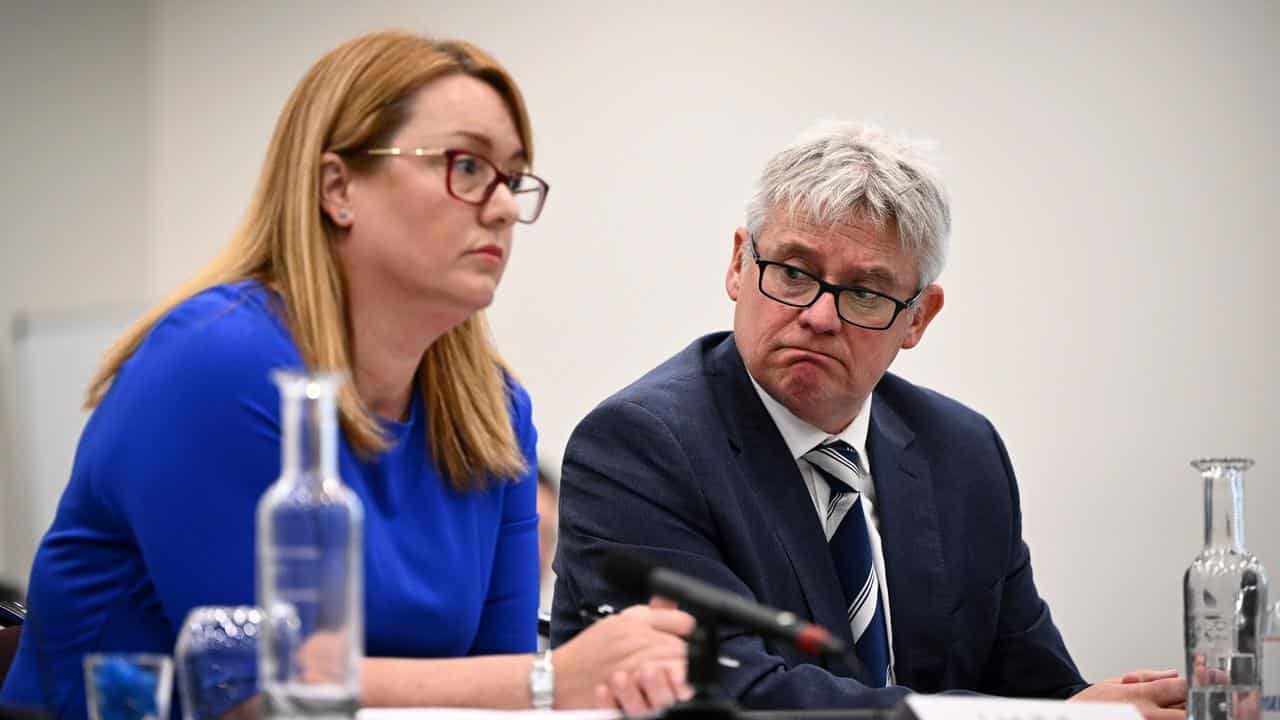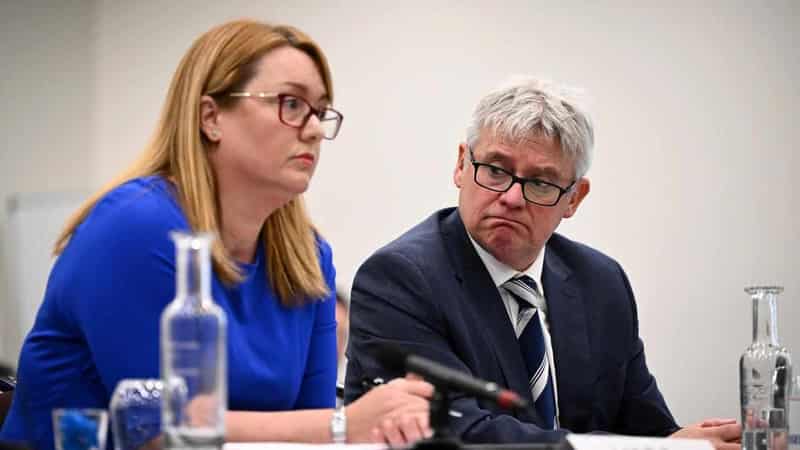
A consulting firm paid to run the numbers on Victoria hosting the doomed Commonwealth Games won't review its work, despite estimated costs blowing out by billions of dollars.
Representatives from Ernst & Young were on Monday hauled before a Senate inquiry, which was initially set up to examine Australia’s preparedness to host the 2026 Commonwealth and 2032 Olympic and Paralympic Games.
The big four consultancy firm was hired by the Victorian government in 2021 to work on a business case to host the Games across regional hubs, which came up with an estimated cost of between $2.5 billion to $3 billion.
An update from July, which was used to justify axing the Games and did not involve EY, revised the price tag to $6.8 billion.
EY partners Dean Yates and Leigh Walker repeatedly refused to answer questions during the hearing in Melbourne, including about how much the firm was paid to develop the document.
Liberal senator Sarah Henderson accused the pair of breaching parliamentary rules when pressing for an explanation about a projected federal government contribution of at least $205 million, as stated in the business case.
Mr Yates said the firm took the assumption at face value and Ms Walker declined to confirm its underlying basis, saying it could reveal confidential cabinet information.
"That's just rubbish," Senator Henderson replied.
No federal funding was set aside for the 2026 Games.
Victorian Premier Daniel Andrews has described the original business case as "hardly the greatest piece of work", but the firm said it was satisfied with its role.
"We stand by the work we did," Mr Yates said.
He said his firm collected and tested the figures but ultimate responsibility for the document rested with the Department of Jobs, Precincts and Regions.
The confidential nature of the project did not allow for consultation on the initial estimates with sporting groups, venue operators and other governments, he said.
The Victorian government has agreed to pay Commonwealth Games bodies $380 million in compensation following protracted negotiations.
All parties were legally bound not to speak further on the settlement details.
Under questioning from Nationals senator Bridget McKenzie, Commonwealth Games Australia president Ben Houston said the sports body didn't request the confidentiality clause.
He said the clause included how much was spent by parties to negotiate the settlement.
The state government flew a team to London to break the news of the cancellation to the Commonwealth Games Federation and begin settlement negotiations.
Commonwealth Games Australia chief executive Craig Phillips said they were made aware of some event cost pressures as early as April 18, before the May state budget was released.
"We were involved in some discussions around some measures to actually reduce those costs," he said.
The Senate committee was unable to compel Mr Andrews and former Commonwealth Games delivery minister Jacinta Allan to appear.
Former Victorian Labor MP Martin Pakula, who was state sports minister when the Games were awarded in April 2022, couldn't explain how costs accelerated so rapidly.
"This is not a rounding error - this is $4 billion difference," Senator Henderson said.
Mr Pakula replied: "It's a difference that occurred in the time since I stopped being a member of the cabinet."
Commonwealth Games Australia has not given up on enticing an Australian city to rescue the 2026 Games.
Gold Coast Mayor Tom Tate and Perth Lord Mayor Basil Zempilas told the committee they were still keen to host the Games, but the Queensland and Western Australian governments have ruled out stumping up the cash.
Mr Tate tabled a letter from federal Sports Minister Anika Wells stating the Albanese government would only consider a Gold Coast proposal if the Queensland government changed its mind.
The inquiry continues in Bendigo on Tuesday.









